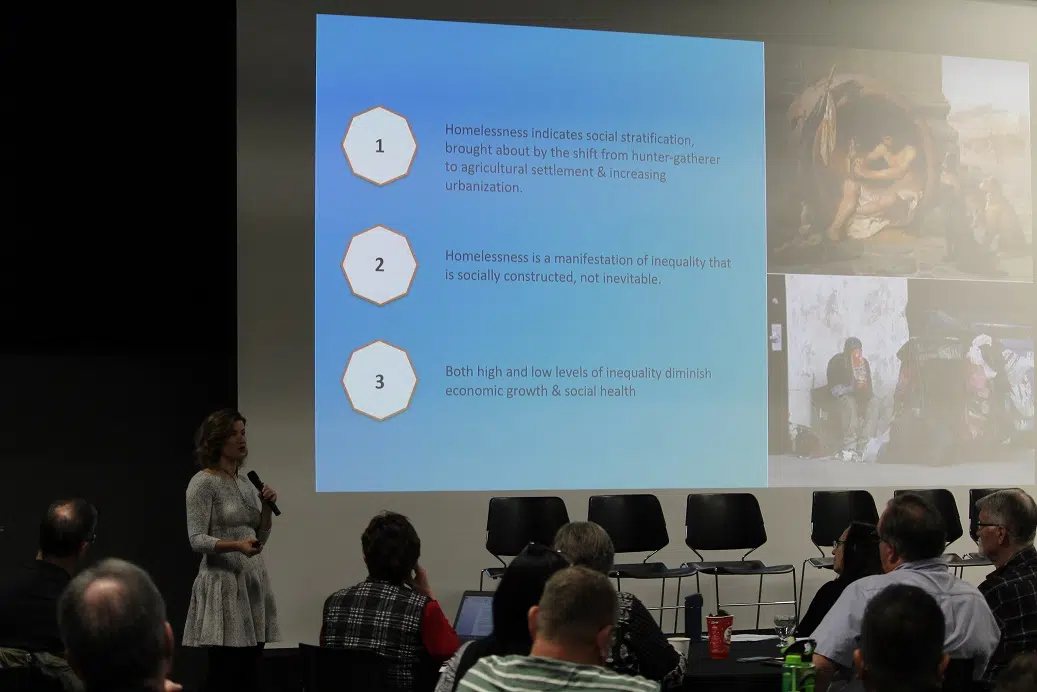
Lethbridge making inroads on the issue of homelessness, but more work needed
LETHBRIDGE, AB – Experts and regional representatives from communities around Southwestern Alberta convened at Casa in Lethbridge on Friday, Mar. 8, for the Social Housing in Action’s Regional Housing Forum.
The forum was held as an opportunity for residents, leaders, partner agencies and those who have lived experience to network and share their ideas and perspectives.
One of the presenters was Dr. Alina Turner, a Public Policy Fellow at the University of Calgary, whose presentation looked at moving towards a regionalized, integrated approach to housing and homelessness in Southwest Alberta.
“I really talked about the need for innovation and the need for regional responses to homelessness. The fact is we’re not going to make much of an impact without working together in a new direction. I talked a lot about the movement of people from smaller rural areas to larger urban centres, and that’s a trend happening globally.


